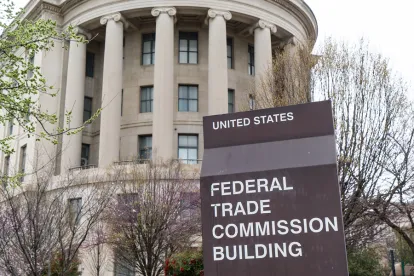The Federal Trade Commission (FTC) has for some years targeted deceptive Made in USA claims as an enforcement priority, as we have previously discussed (see our most recent blog post on Made in USA here). Since 1999, the FTC has brought 28 enforcement actions against companies falsely claiming their products were American made. The Commission also sent closing letters to more than 150 businesses after they agreed to remove the offending statements.
Even though Made in USA cases frequently attract FTC scrutiny, no existing federal rule specifically governs such claims, although Congress authorized FTC rulemaking to address Made in USA claims on “labels or equivalent thereof” when it enacted Section 45a of the FTC Act. Instead, the FTC’s 1997 Enforcement Policy Statement on U.S.-Origin Claims, and its consent agreements and closing letters offers guidance to marketers about when the Commission views an unqualified “Made in USA” claim may potentially deceive consumers. In the wake of a workshop held last year on such claims, on June 22, 2020, the FTC posted a Notice of Proposed Rulemaking that would codify the Enforcement Policy Statement principles for all Made in USA claims.
The proposed Rule would bar companies from making unqualified Made in USA claims unless the company can show that the advertised product satisfies the following three criteria:
1) final assembly or processing of the product occurs in the United States
2) all significant processing that goes into the product occurs in the United States
3) all or virtually all ingredients or components of the product are made and sourced in the United States
The proposed Rule, if adopted, would apply not only to labels, but also to mail order catalog and mail order promotional material, defined to include “any materials, used in the direct sale or direct offering for sale of any product or service, that are disseminated in print or by electronic means, and that solicit the purchase of such product or service by mail, telephone, electronic mail, or some other method without examining the actual product purchased.” The proposed Rule would not preempt federal or state statutes or regulations relating to country-of-origin labels, except and to the extent such laws or regulations are inconsistent with the Rule. States whose protections are greater than the proposed Rule’s provisions would not be considered inconsistent.
Businesses that violate the Rule’s requirements would face civil penalties.
The proposed rulemaking follows publication of a staff report on the FTC’s Made in USA workshop, held last fall. Staff noted in the report that consumer research and feedback from thousands of workshop attendees made clear that a large number of consumers expect that products that advertise “Made in USA” are 100% homegrown, including all parts and ingredients.
The Commission vote approving publication of the proposed Made in USA Labeling Rule Federal Register notice was 4-1, but several Commissioners issued dissenting or separate statements addressing whether the scope of the proposed rule was consistent with the FTC’s statutory authority under Section 45a.
Commissioner Noah Joshua Phillips dissented and issued a statement in which he voiced the opinion that the proposed Rule overstepped the Commission’s authority under this provision, which applies to Made in USA “labels,” or “equivalent thereof.” Specifically, Commissioner Phillips objected to the addition of mail order catalogs and advertising in the Rule.
Commissioner Christine Wilson approved issuing the Notice of Proposed Rulemaking, but agreed with Commissioner Phillips, commenting, “I support seeking comment on this proposed rule, but write separately to emphasize that the decision to issue an NPRM seeking comment does not prejudge the outcome of the process, which must observe the boundaries of our statutory authority.” She noted her reluctance to leave to the courts the question of whether the FTC overstepped its statutory authority and highlighted express language in Section 45a limiting application to “labels.”
In contrast, Commissioner Rohit Chopra argued that the Rule should have wide reach, including mail order advertising. In fact, he expressed the view that Made in the USA fraud should be subject to “a broader prohibition.”
Comments will be accepted on any aspect of the proposed Rule, including the scope of the Commission’s authority to issue a rule governing claims that may not constitute “labeling” within 60 days after publication in the Federal Register. As of this posting, the proposal has not been published, but publication is expected soon.




 />i
/>i

